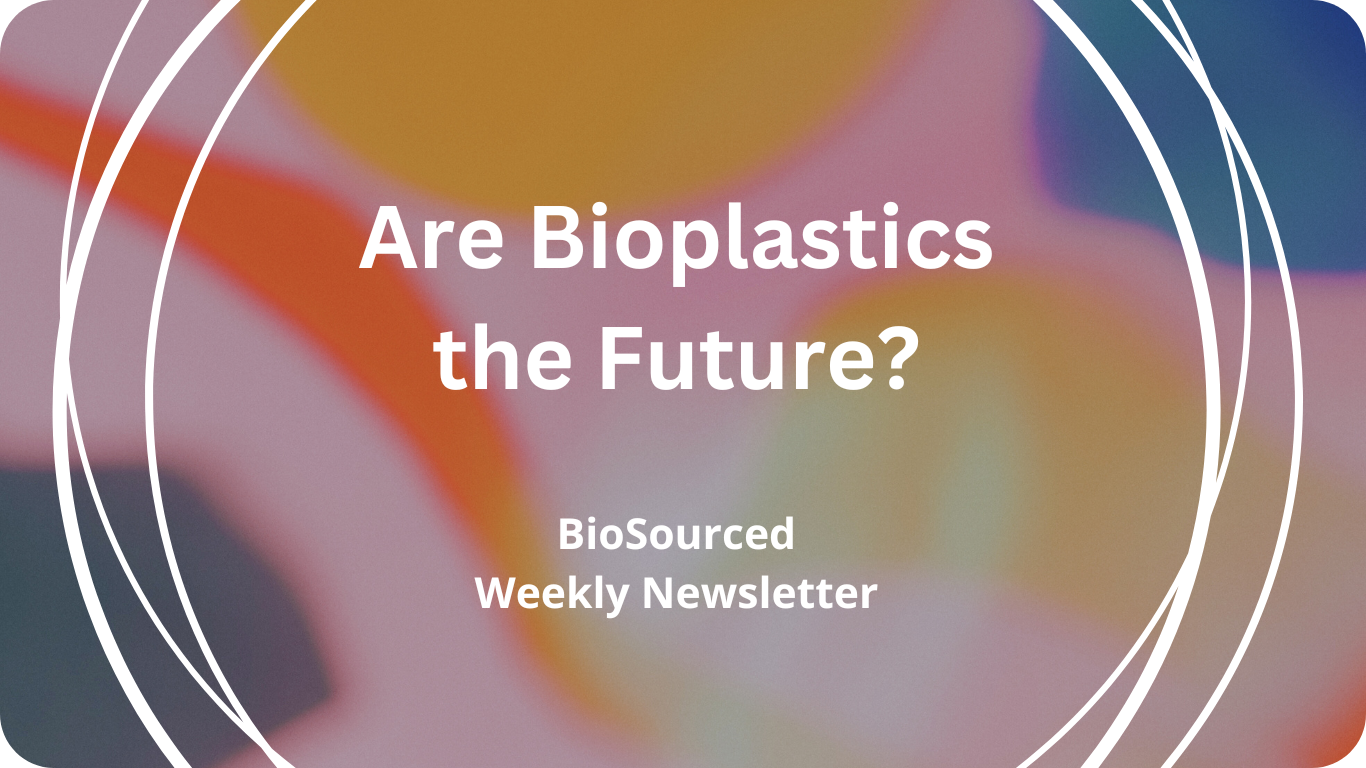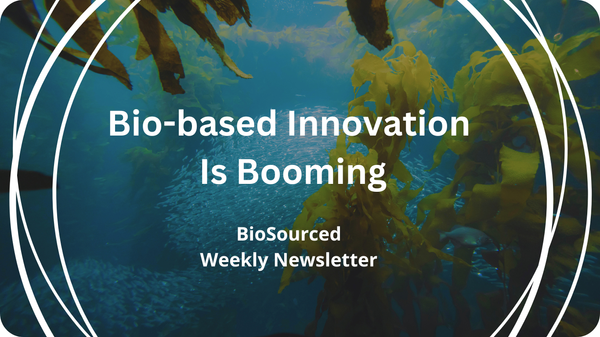Are Bioplastics the Future?
Plus: Latest bio-based releases, industry insights, EU Packaging regulations, and events to help you go fully circular.

The global plastics industry produces over 400 million metric tons of plastic every year, with 8-11 million tons ending up in the ocean annually.
While recycling rates remain disappointingly low—hovering around 9% globally—bio-based alternatives are gaining traction as viable solutions to curb plastic pollution and reduce reliance on fossil fuels. Bioplastics currently make up under 1% of total plastic production, but the market is expected to grow at a CAGR of 18% over the next four years.
Join us as we explore recent bio-based innovations that are not only expanding applications but also addressing key performance and scalability challenges.
📦 Business & Industry Developments
Biodegradable Throws at Mardi Gras
Mardi Gras is a time of celebration, color, and—unfortunately—plastic waste. Each year, New Orleans is left with over 1,000 tons of discarded beads, cups, and other trinkets.
But this year, the Rex Organization, a historic carnival krewe, has teamed up the the local non profit Grounds Krewe to shake things up with biodegradable throws for 2025. These eco-friendly throws, made from plant-based biodegradable polymers, include delightful gifts that are either biodegradable, plant-based, or recyclable.
This year's festive leftovers are designed to decompose safely in the environment, leaving behind only memories—not microplastics.
FDA-Approved Biodegradable Food Packaging
Imagine a world where food packaging doesn’t outlive the food inside it. The US startup, Wax Paperie has taken a step in that direction with its new FDA-compliant biodegradable wax paper that is durable, also reliable against food leakage.
Made with soy, inks, and chitosan & polylactic acid (PLA) coatings, this innovation provides a low-energy alternative to traditional materials which often contain petroleum-based coatings.
Earthfirst Films’ Compostable Laminations for Packaging
Also FDA compliant, the US plastic film leader’s new line Earthfirst Compostable Laminations consists of high-performing and compostable packaging materials crafted especially for SMES. Made from renewable plant-based materials, the compostable laminations are designed to nourish the planet while providing high-barrier properties for product integrity.
More on compostables:
- BASF’s Compostable Plant Clips for Greenhouse Cultivation
- Could onions help solve the plastic crisis? Huid’s onion-based plastic alternative
Polyplastics Launches Plastron LFT
Polyplastics, a leading Japanese manufacturer, has unveiled Plastron LFT (Long Fiber Thermoplastic), a composite made from polypropylene resin and regenerated cellulose fibre.
The material is ideal for audio equipment components like speaker diaphragms and has a carbon footprint 30% lower than its glass-fibre counterpart. It is also designed for strength, durability, high rigidity and impact resistance.
Meanwhile, in India…
🌍 Market & Industry Trends
The Status & Outlook of Bio-Based Polymers
Bioplastics may still be a small slice of the global plastic pie, but their demand is growing.
A new industry analysis by Michael Carus, Founder and CEO of the German nova-Institte, highlights the role of bioplastics in the current and future economy, PLA's performance as the leading plastic alternative, the largest producers, and the regulations shaping the bio-based polymer sector.
EU’s New Packaging Regulations
In the race to reduce packaging waste, the European Union is setting the pace. The newly introduced Packaging and Packaging Waste Regulation (PPWR) includes binding targets for reusable packaging, compostable materials, recycled content, and bio-based materials by 2028.
Companies that fail to adapt could find themselves on the wrong side of policy—and consumer sentiment.
📚 Education & Resources
Responsible Packaging Fundamentals
What makes packaging truly sustainable? A new guide dives deep into responsible packaging principles, breaking down industry insights, safety & certification, sustainable material sourcing, recycling & consumer education, and more.
🎟️ Events
edie’s Sustainable Supply Chains Webinar
Sustainability doesn’t stop at the product—it extends across the entire supply chain. Join industry experts to explore how brands can make their logistics and sourcing greener without sacrificing efficiency.
Date: February 27th
Coming up soon:
With bio-based plastics gaining momentum, the next few years will be crucial for innovation, regulation, and large-scale adoption. Governments are pushing for change, companies are experimenting with alternatives, and consumers are demanding sustainable choices. The shift from fossil-based to bio-based materials is no longer optional—it’s inevitable.
If you found this newsletter insightful, share it with industry leaders, innovators, and sustainability advocates. Follow us on LinkedIn for regular updates.





